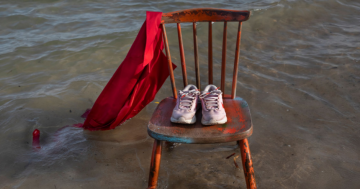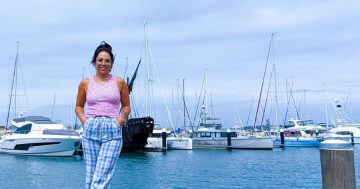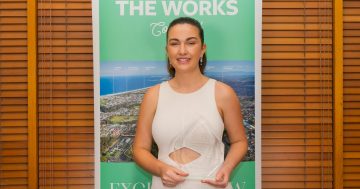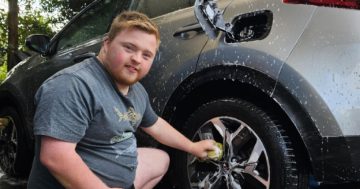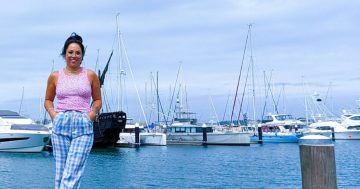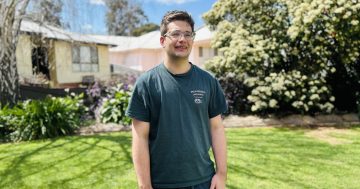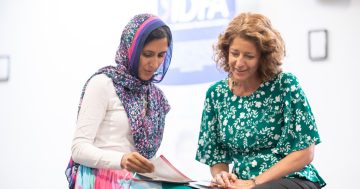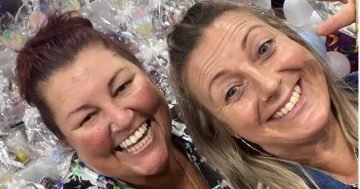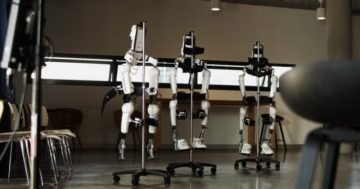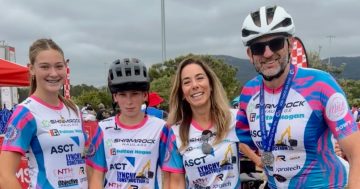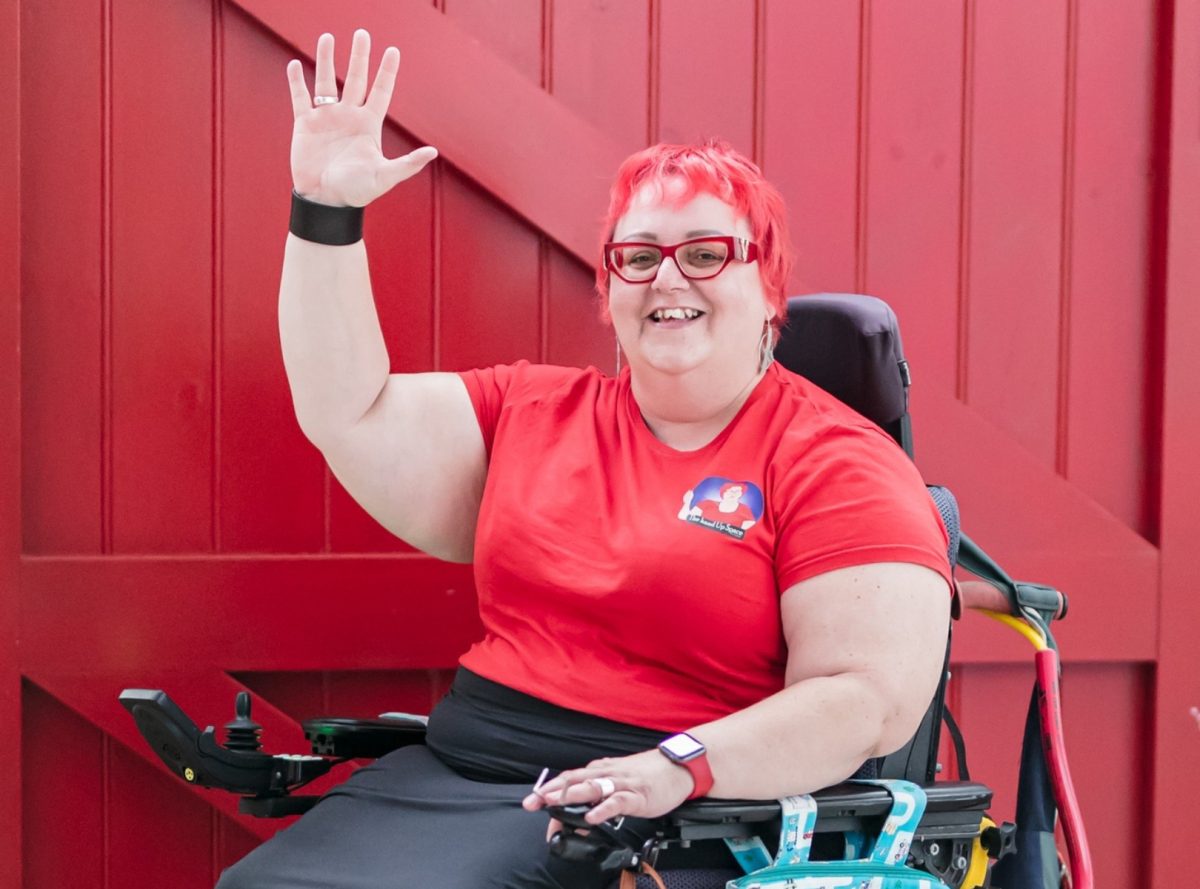
Multiple sclerosis has not stopped Nina Crumpton from setting up her own business, The Hand Up Space. Photo: Supplied.
Towradgi woman Nina Crumpton, diagnosed with multiple sclerosis more than a decade ago, has become a beacon of hope for other NDIS participants looking to run their own successful businesses.
Known around Wollongong for her signature red hair and matching wheelchair, Nina now runs The Hand Up Space, offering support coordination for those navigating the NDIS.
“I was diagnosed with MS in 2013 and you kind of lose everything,” she said.
“Because I was so unwell, I lost my house, I lost the ability to drive, I lost the ability to work. It all just kind of tumbled down.”
Nina said it was a challenging 12 months after previously having a career in corporate security and becoming a mature-age student at the University of Wollongong studying primary teaching.
However, her life shifted again when she attended an MS community event and met the late Susan Tame.
“She became a mentor for me, and she saw some sort of potential in me and said, ‘You’re going to come and work at the MS Society’,” she said.
“That’s how it all started.
“I began a process of reinvention.”
Nina said that was 2016, when the NDIS was first rolled out in Wollongong, leading her to become a support coordinator with the MS Society before spending two years working in special disability accommodation with another organisation.
“I had some funding available with my own support coordinator, and I said, ‘I don’t come from a business background, but can you teach me how to be you?” she said.
Nina said her support coordinator, Mandy Drain from Taylor Made Outcomes, mentored her through the process of becoming NDIS-registered and gaining NDIS funding for employment support.
It was then Phuong Barraclough from Connect My Community who helped establish connections with services to run a business, from admin to legal.
“For the past 18 months, I’ve been working as a sole trader and I love the freedom it brings, being able to work for yourself, but also being an example to other people with a disability that you can run your own business successfully,” Nina said.
“Being able to work in the community with participants is what I love to do.
“You’ll have a new referral come in, you’ll see all the crisis points and how things aren’t working well, and your mind starts ticking and you put all the jigsaw pieces together, and then one year will go by and you’ll see the improvements.
“It might not be major, but at least there is improvement.
“Then you build upon that and keep going.
“I find that very personally satisfying.”
Nina describes a support coordinator as being like a case manager, connecting NDIS participants to services, managing crises, building their capacity to negotiate with providers and bring in external services.
She also provides specialist support coordination for people with complex needs, homelessness, psychosocial disability, or those involved in justice or child protection, along with psychosocial recovery coaching, which uses her lived experience of also having bipolar 1 to assist people on their mental health recovery journey.
Phuong said Nina was an example for others that it was possible to tap into their first-hand NDIS experience to start their own business.
“They get to be self-employed and create their own income stream from their own skills and talents, because people with disabilities find it so hard to gain employment out there,” she said.
“Part of what matches our values is that getting high-quality providers that work locally and care about their local community, live in their community and know their community really well, and also have that lived experience, end up providing higher-quality service than a large organisation that doesn’t have that personal connection.”
Nina admitted she did approach things differently because she was disability-led, which included things like regular face-to-face check-ins.
“I really like to be out in the community and meeting people face-to-face and seeing how their lives really are, whereas a lot of other providers will just have that telephone contact,” she said.
“Then you really can’t see what’s going on and you’re not doing that fully collaborative approach.”
While she said participants tended to relate better to her because she was open about having a disability and having seen the NDIS from “all different sides of the coin”, it did come with challenges.
“Having a degenerative disability, you’ve got to manage your own health needs and make sure you prioritise your own self-care so you can say you can be the best version of yourself,” Nina said.
“I think I am a workaholic and I’ve tended in the past to really burn myself out, but I’ve really learnt that lesson the hard way that you’ve got to look after your health, and then everything can flow from that.”
Part of prioritising her own health includes attending a monthly Wollongong MS peer support group at The Fraternity Club in Fairy Meadow.
“I’ve been going to that for nine years, pretty much since I got diagnosed with MS,” she said.
“That check-in with people who really get it is something that benefits that sense of community, but also my own mental health as well.”
Learn more about The Hand Up Space.








